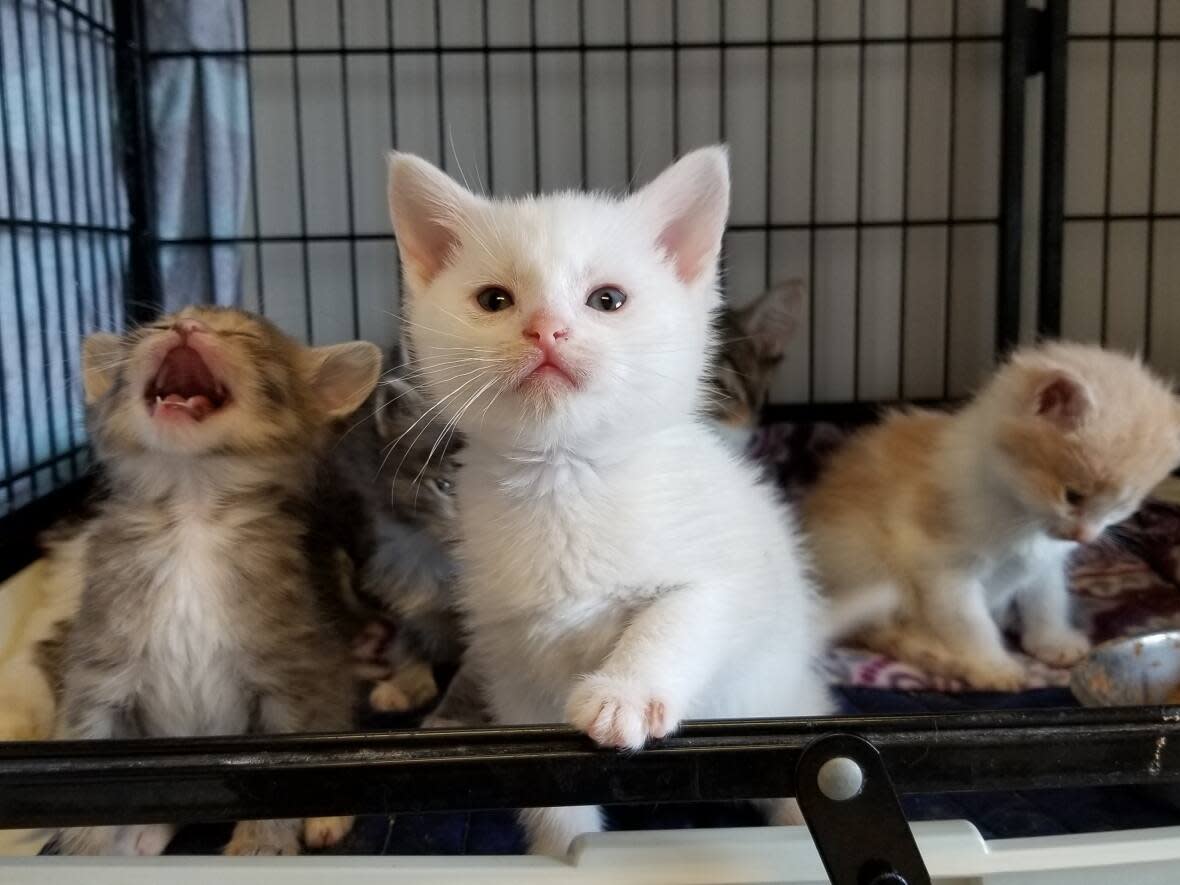SPCA issues warning about couple selling sick kittens in Surrey, B.C.

The B.C. Society for the Prevention of Cruelty to Animals (SPCA) is warning the public to be wary of a Surrey couple selling sick kittens, some of them underage.
The society received 11 complaints from people who purchased from the pair in Surrey and Langley, said Eileen Drever, senior officer of protection and stakeholder relations.
"[The kittens] had upset tummies and were vomiting ... some of the kittens tested positive for the feline parvovirus," she said.
"Some of the kittens actually died, which is really, really unfortunate."
Feline parvovirus, which can be fatal, attacks the intestines, causing diarrhea, vomiting, and difficulty eating and drinking. Vaccinations can offer protection from the virus.
Drever said the SPCA's special constables are investigating the complaints and have identified the couple.
"I have no doubt by the end of the investigation that we will be recommending charges against these individuals," she said, adding the maximum penalty under B.C.'s Prevention of Cruelty to Animals Act is a $75,000 fine, two years imprisonment and a prohibition from owning animals.
Drever and other animal advocates are warning people to adopt or purchase animals from a reputable organization or breeder, and are calling on the province to adopt regulations for domestic animal breeders.
"Anybody can go out and purchase a male and female and start breeding and make a lot money exploiting kittens and puppies," said Drever.
"It's heartbreaking for the cats and the people who though they were purchasing a healthy kitten."
Dos and don'ts
Drever says the couple under investigation are believed to have multiple accounts on Kijiji and Craigslist, selling multiple breeds of cats for prices ranging from $250 to $1,500.
The couple insisted on meeting in parking lots or public spaces to buy the pets, which should always be a red flag for buyers, she added.
"Reputable breeders don't have a problem showing you the mom, the dad and where the [kittens] were raised."
"When you look into the eyes of any puppy or kitten, your heart just melts and you want to rescue it. ... [but] you're not rescuing it, you're just lining the pockets of people exploiting animals," she says.
She says it's also important to be certain whether the animal has been vaccinated, asking who the veterinarian is, and checking if the animal is registered with an organization like the Canadian Kennel Club.
She notes people "looking for a lifelong companion" have other adoption options besides listings websites.
"You have the B.C. SPCA, you have reputable breeders and you have reputable rescues. So please, before you do that, check them out," Drever said.
Push for regulation
Vancouver Humane Society executive director Amy Morris says B.C. needs to look at other provinces for regulations that ensure the well-being of domestic animals.
"In New Brunswick, breeders become regulated. They know what is expected of them and they're inspected annually," she said. Another regulation allows purchasers of sick animals to report a business and stop them from selling, she added.
In 2016, B.C. introduced recommendations on how breeders should care for domestic animals but didn't add any regulations on what happens when standards aren't met, Morris said.
"So, as it exists right now, ... [breeders] have no repercussions ... there's no protections for [the animals]," she said.
She also notes Statistics Canada tracks the number of farm animals being bred and produced, but doesn't have any such data for dogs or cats.
In a statement, the Minister of Agriculture and Food says work was underway to build a regulatory framework to support responsible breeding practices, but it was interrupted by the COVID-19 pandemic.
"Anyone with concerns about the welfare of specific animals is asked to call the B.C. SPCA directly as they are mandated by our government under the B.C. Prevention of Cruelty to Animals Act to respond to animals in distress," the statement said.


